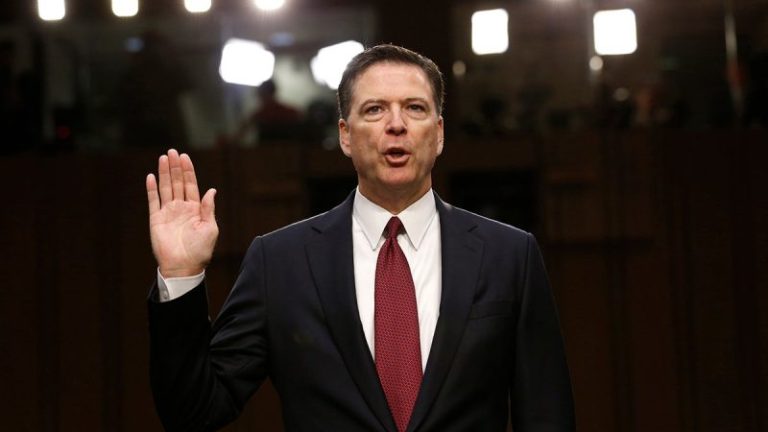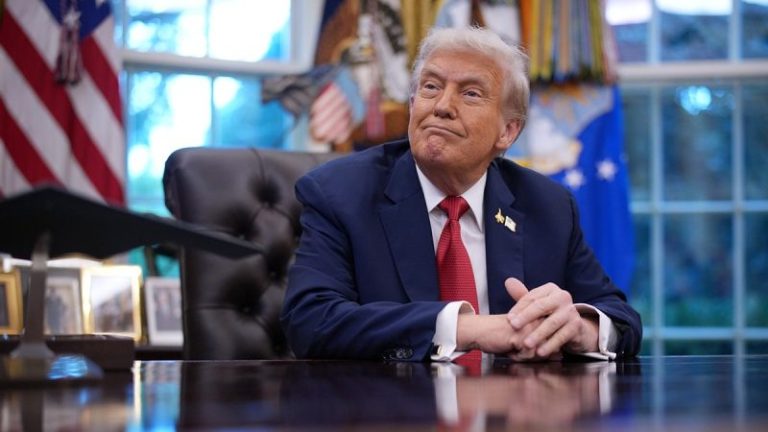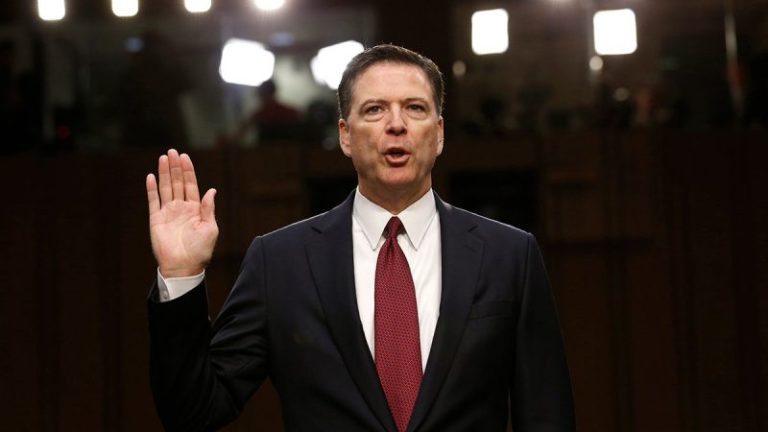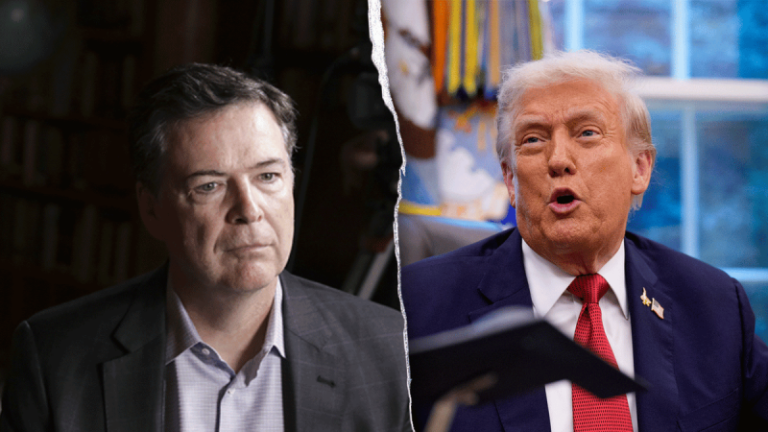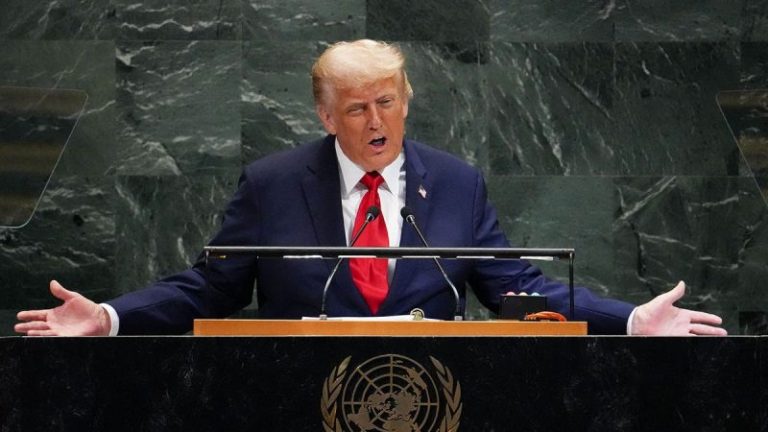President Trump reacted to the indictment of former FBI Director James Comey, telling Fox News Digital during an exclusive interview that he ‘placed a cloud over the entire nation’ with the bureau’s ‘Crossfire Hurricane’ probe.
Comey, on Thursday evening, was indicted by a grand jury on two counts, alleged false statements within jurisdiction of the legislative branch and obstruction of congressional proceeding.
‘What they did was so terrible and so corrupt,’ Trump told Fox News Digital, referring to those involved in the Trump-Russia probe. ‘We had a great administration, though.’
Former Deputy Assistant Director of Counterintelligence Peter Strzok formally opened the Trump-Russia investigation, known inside the bureau as ‘Crossfire Hurricane’ on July 31, 2016.
Trump fired Comey in May 2017. Days later Special Counsel Robert Mueller was appointed to take over the Crossfire Hurricane probe.
‘He is a very corrupt person. He was absolutely a terrible man for what this country stood for,’ Trump told Fox News Digital.
‘Comey placed a cloud over the entire nation, and actually, the Russia, Russia, Russia hoax made it very difficult,’ Trump said. ‘It could have caused wars.’
Fox News Digital exclusively reported in July that Comey was under criminal investigation by the FBI.
Fox News Digital also exclusively reported that former CIA Director John Brennan is under criminal investigation related to the Trump–Russia probe.
When asked whether Brennan should be charged as well, the president told Fox News Digital: ‘We’ll have to see what happens.’
‘It is up to the Justice Department, but I can tell you, it is a group of people that was very disappointing,’ the president said. ‘This makes Watergate look like peanuts.’
He added: ‘They tried to destroy our country.’
Comey’s case is being handled by the U.S. Attorney’s Office for the Eastern District of Virginia.
The indictment alleges that Comey obstructed a congressional investigation into the disclosure of sensitive information in violation of 18 USC 1505.
The indictment also alleges Comey made a false statement when he stated he did not authorize someone at the FBI to be an anonymous source. According to the indictment, that statement was false.
His arraignment is set for 10 a.m. on Oct. 9, in Alexandria Courtroom 600 before District Juge Michael S. Nachmanoff.
‘No one is above the law,’ Attorney General Pam Bondi said on X. ‘Today’s indictment reflects this Department of Justice’s commitment to holding those who abuse positions of power accountable for misleading the American people. We will follow the facts in this case.’
FBI Director Kash Patel took to X to say, ‘Today, your FBI took another step in its promise of full accountability.’
‘For far too long, previous corrupt leadership and their enablers weaponized federal law enforcement, damaging once proud institutions and severely eroding public trust,’ Patel wrote. ‘Every day, we continue the fight to earn that trust back, and under my leadership, this FBI will confront the problem head-on. Nowhere was this politicization of law enforcement more blatant than during the Russiagate hoax, a disgraceful chapter in history we continue to investigate and expose.
‘Everyone, especially those in positions of power, will be held to account – no matter their perch.’
Meanwhile, after nearly two years, former Special Counsel Robert Mueller’s investigation, which concluded in March 2019, yielded no evidence of criminal conspiracy or coordination between the Trump campaign and Russian officials during the 2016 presidential election.
Shortly after, John Durham was appointed as special counsel to investigate the origins of the ‘Crossfire Hurricane’ probe.
Durham found that the FBI ‘failed to act’ on a ‘clear warning sign’ that the bureau was the ‘target’ of a Clinton-led effort to ‘manipulate or influence the law enforcement process for political purposes’ ahead of the 2016 presidential election.
‘The aforementioned facts reflect a rather startling and inexplicable failure to adequately consider and incorporate the Clinton Plan intelligence into the FBI’s investigative decision-making in the Crossfire Hurricane investigation,’ Durham’s report states.
‘Indeed, had the FBI opened the Crossfire Hurricane investigation as an assessment and, in turn, gathered and analyzed data in concert with the information from the Clinton Plan intelligence, it is likely that the information received would have been examined, at a minimum, with a more critical eye,’ the report continued.
Durham, in his report, said the FBI ‘failed to act on what should have been — when combined with other incontrovertible facts — a clear warning sign that the FBI might then be the target of an effort to manipulate or influence the law enforcement process for political purposes during the 2016 presidential election.’
In an Instagram post on Thursday, Comey acknowledged that he and his family have known for years that there are costs to standing up to President Donald Trump.
‘We couldn’t imagine ourselves living any other way,’ he said. ‘We will not live on our knees and you shouldn’t.’
Fox News’ David Spunt contributed to this report.
This post appeared first on FOX NEWS




